12 06 2022
631219
ID:
Abstract:
In the name of the Most High, the Most High
In this short article, it seems useful to explain two things: first, to explain the meaning of the miracle and its connection with the truth of the claimant of prophecy. Second, stating the meaning of imamate and enumerating it from the principles of religion in Shia culture.
First part
The relationship between mission, prophecy, and governorship
1. The mission of every prophet depends on his prophethood, his prophethood is related to his province. The direction of connecting a perfect human being to God, the Most High, is indeed his province, and the direction of his connection to human society is his mission, and the link between these two directions is indeed his prophethood; As the difference of missions is due to the difference of prophecies and the excellence of prophecies in the light of the difference of provinces.
2. Examining prophecy as a proof to explain the celibacy of the soul and the degrees of theoretical and practical reason and the achievement of the perfect human being to the sanctity of the soul and following the forces of fear and imagination from the power of understanding and observation, which is not intended here.
Examining the prophecy is a proof for some of the people who seek their mystical intuition, that any rational or narrative evidence is established after the mystical intuition, for him, it is as much as confirming the matter; Not to the extent of proving the point; But its proof for the mass of people is by divine provision.
Whenever God Almighty declares the prophethood of a certain person in a text, his prophecy is confirmed and this text is either verbal or verbatim, and sometimes the verbatim text is the same as the verbatim text.
The first oath is that it is declared to be the prophecy of a certain person by an infallible prophet whose prophecy has already been proven, and in this case, the prophecy of the second prophet is proven by the words of the first prophet, which carries divine approval.
The second part is that the claimant's prophecy is proved by a miracle, that the appearance of a miracle is nothing other than the present description of God Almighty.
The third part is that by this claimant of prophethood, the words of his prophethood are narrated from God, that the content of said words is his prophetic statement, his miracles are the guarantee of his reference to God, Glory be to Him; Like the Noble Qur'an, the content of which is the statement of the prophethood of the Holy Prophet, which is a verbal interpretation, and the miracle of this word is the reason for its reference to God, which is the actual interpretation, and about the Holy Prophet (peace and blessings of Allah be upon him), it is an interpretation of all three types. has been achieved and what is presented in the short preface is the brief description of the second part.
The meaning of miracle and its implication of prophecy
4. A miracle is an extraordinary work; Not against the law of causality, and it is distinguished from all strange sciences; Because there is no way of thinking and science. In this way, it cannot be taught. Rather, it is subject to the sanctity of the soul and the powerful will of the miracle owner; Just as the body is at the disposal of the single soul, the realm of miracles is under the will of the owner of the miracle and it never disobeys it; as he does not dare with any factor; Therefore, the witness of the truth of the claim of prophethood or imamate is the owner of miracles; Because this unusual work is ordered by God and it will be a sign of His approval of the claimant of the mission, and God's approval is also useful for certainty.
5. It may be said as follows: First of all, by what criteria can we understand that a phenomenon is the work of God and does not refer to any other factor? Second, how can it be recognized that God is doing this normal thing to confirm the Prophet (peace be upon him)? Thirdly, how can you understand that someone who was approved by God is surely truthful in this claim an
d...?
In answer to the first question, it can be said: although every creature that you are is not the same thing, it is God's creation, and this reasonable matter is confirmed by anecdotal evidence; ﴿Allah is the creator of all things... ﴾ [1], and the creation of any phenomenon is impossible without the permission of God, a miracle in terms of the status of proof is that special phenomenon that God does not give the permission of the realization of his counterpart or superior to him, and in the status of proof, it can be He said: Miracles in every era are among the most advanced scientific disciplines of that time; As the secret of miracle diversity has also been stated [2].
Because the claimant of prophethood challenges and demands a fight by presenting a miracle, everyone's motivation will rise to fight him, and many reasons will be raised to participate in this fight, and the mass of people will refer to the experts in that field, and these experts are experts who can Thoughtfulness in all aspects of the matter by referring to some empirical principles in the field of their expertise, they can find out through guesswork that what the claimant of prophecy has brought, although it is apparently similar to some of the unusual works of experts in this field, but enough reflection leads to the conclusion that At all, what the claimant of prophecy has brought is not from the work of experts; so that they or others, waiting for the progress of that specialized field in the near or far future, can do the same as the work of the claimant of prophecy; As Pharaoh's sorcerers thought through the work of Musa Kalim (peace be upon him) and realized that the work of Prophet Musa is not their work at all, so that with the advancement of the specialized field of magic, they or other specialists can bring its counterpart. Therefore, they believed in Hazrat Kalim (peace be upon him) and endured any danger for the protection of the divine religion.
If the recognition of a miracle is not supported by a rational argument and it is enough to break the habit, there is no trust in it; Therefore, the group of non-experts who believed in Moses Kalim (peace be upon him), because they were moving on the axis of sense and not on the orbit of reason, just as they became believers when they saw a staff turning into a snake, they converted to Samaritans just by hearing the call of an artificial calf and from the religion of Moses ( (peace be upon him) became apostates.
The purpose is that it is a criterion for a miracle both in the position of proof and in the position of proof, there is a special criterion for its diagnosis, and just as in other matters, experts are the reference of non-specialists, in determining whether something is a miracle, ordinary people refer to the wise experts of that field.
In short, a miracle is something that is inherently possible and usually impossible to exist, and the diagnosis of its normal refusal is the responsibility of experts in that field, and their diagnosis is a matter of conjecture, while relying on advanced empirical principles in that field, not the experience of prophetology; Because the essential difference between miracles and non-miracles is a favorable ground for the speculation of experts: Dawn should not side with miracles, a happy heart.
In answer to the second question, it can be said: the sanctity of the soul is the source of the knowledge of the unseen knowledge and the mysteries of existence, as a knowledge of presence, and as a power, it is the basis of possession in the cosmic system. Of course, both that knowledge is due to divine teaching, and this power is due to God's decree, and since attaining the position of prophethood is an unusual thing, its claim is confirmed by something that is out of the ordinary, and the criteria for its diagnosis is the responsibility of experts in the field that it The discipline is like a miracle, and the circuit of their diagnosis is also a strong guess that has the authority to form an argument; But to the extent of conjectures; Not the ancestors, and since something being a miracle is a sign of divine confirmation, it is interpreted as a (verse) in religious texts, both from the Qur'an and non-Qur'an; It means the sign of the truth of the prophecy.
A miracle is a sign of prophecy or imamate
Just as every possible being, whether ordinary or extraordinary, is a sign and sign of monotheism, every extraordinary being is an invincible sign and sign of prophethood or Imamate.
Just as every human being with sufficient reflection about every creature realizes its creator; (Indeed, in the creation of the heavens and the earth, and the difference between the night and the day, Layat al-Awli al-Labab.) [3] Every sane person also believes in the prophethood or imamate of the one who brings it, by considering the aspects of every unusual and invincible creature of his age.
Just as those who are unaware of the divine revelations do not take a monotheistic side, ﴿and where are the signs in the heavens and the earth, they pass over them and are also exposed to them﴾ [4] Stubborn fanatics also do not gain prophetic or divine benefit from witnessing the revelations of prophethood or imamate; [5]
In answer to the third question, we can say: the connection between miracles and the holiness of the soul is a formative matter; Not a contract. Just as every possible existence is a sign of God's existence, and this sign is a formative imperative, not a situational one, every extraordinary, invincible being is also a sign of the holiness of God's guardian spirit, and this is a formative imperative sign; Not a contract.
Also, the link between miracle and mission and imamate in the sense of leadership and guardianship of the society, which is a contractual matter, is a formative reality and can be rationally argued, and is never valid.
The explanation is that based on the Ash'arite, who deny goodness and ugliness rationally and consider any kind of questioning about God as forbidden, and have considered th
e blessed verse ﴾La yusiel umma heheel ve ham yusiloun﴿ [6] to be correct in the excessive will, the essence of the discussion of the necessity of prophethood and the necessity of sending prophets and the obligation It is not relevant to send a divine book, etc., to talk about the connection between a miracle and the truthfulness of the claimant of prophethood, and to question them as to what prevents God from confirming a false person; Because you do not believe in its intellectual ugliness.
But on the basis of the Imamiyyah, which believe in goodness and ugliness rationally, although there is a deep difference between them, because the Imamiyyah believe in the necessity of issuing good and goodness from God and the refusal to issue evil and ugly from God, and the Mu'tazila believe in the necessity or refusal of God, but the principle The discussion of the necessity of prophecy and its branches is completely clear.
The meaning of intellectual goodness and ugliness in this type of discussion is different from goodness and ugliness in the discussion of practical wisdom; As the meaning of necessity in this case is the same as philosophical necessity; Not a jurisprudential obligation.
Goodness and ugliness in wisdom is a matter of credibility, and it carries with it the obligation and sanctity of credibility; But good and bad in theoretical wisdom is objective; because it goes back to perfection and imperfection; Not to the credit of the authentic, it inevitably brings with it the necessity and philosophical refusal; Not the obligation and sanctity of jurisprudence.
For example, in the Noble Qur'an, there are positive attributes for God, such as truthfulness, ﴿...I am truly truthful, man Allah ﴾ [7] and faithfulness to the covenant ﴿ I have fulfilled my promise... ﴾ [8] and negative attributes such as cruelty ﴿.. And the Lord does not oppress anyone﴾ [9] And behind the promise, ﴿...Allah does not violate the period﴾ [10] has been mentioned, and these descriptions are never meant to describe the attributes of practical wisdom and contractual matters; That is, if it is said that God is honest and just, it does not mean that such and such a person is truthful and righteous; Because the second is credit and the first is real.
Therefore, neither the recognition of goodness and ugliness as practical wisdom causes a problem regarding the status of theoretical wisdom, nor the possibility of issuing ugliness, i.e. an incomplete existence, is related to God, and the fact that the Qur'an said that if the Holy Prophet If God tells a lie and uses the position of prophethood and the power of miracles to slander something that God did not say, God Almighty will cut off his lifeline and take away his power [11] and..., it is about this truth; Not the description of a credit matter. In short, in this question, the confusion of truth and credibility is evident; Because the refusal of reason has been confused with the Sharia prohibition.
Reminder
1. The necessity of miracles and the signification of miracles on the truth of the claim of mission, as it is mentioned in the art of speech, is also mentioned in the art of wisdom; Therefore, Ibn Sina in the Theology of Healing [12] and Sadr al-Mutallahin (Quds Sarra) in the Origin and Resurrection [13] have considered miracles as a proof of the truthfulness of the divine prophet.
2. Imam Razi considered the problem of good and evil to be based on the choice of the subject and on the basis of goodness and badness rationally, and those who consider God as a positive agent (bafath) or do not believe in good and badness and with [14] They think that they have no right to enter into this discussion.
Mohaghegh Tusi (Quds Sarra) replied: The sages discuss how evil will be produced from something that is intrinsically good, and finally they inform others that what is produced and real is not evil[15] and what is evil It is real, it is not an existential matter; In other words, what is meant by the ugliness of issuing evil from something that is intrinsically good is the same intellectual refusal; not a shari'a or customary prohibition; As he said in justifying the good deeds of the evil eagle: "... and the will of good deeds is the opposite of evil, but we do not go to those who talk".[16]
3. Every prophet does two things; One is a call to teachings and rules, and the other is a mission claim. Examining the contents of the da'wah and its compliance with the rational argument proves the validity of the da'wah; No, the truth of the claim and what proves his claim, apart from the mystical intuition or the text of the previous prophet, is indeed a miracle, and by proving the truth of the claim, one can understand the truth of the contents of the invitation; So the compulsion is one-sided; not bilateral; That is, by proving the truth of the claim, the truth of the invitation is proven; But merely proving the validity of the invitation is not the proof of the validity of the claim.
4. Miracles are special to prove prophecy; Not public prophecy. Yes, the discussion in the principle of miracles is about public prophecy; But its realization is proven outside the way of miracles, which is specific to prophecy.
5. The Holy Quran considers miracles as sufficient evidence; As he says about the staff of Moses and the white hand of the Holy Prophet: ﴿ Then my proofs are from the Lord to Pharaoh and the people... ﴾ [17] And he considers the faith of a person who has become a believer based on a miracle to be valid and disbelief against it. It counts as destruction, and in this respect, there is no difference between a suggested and an initial miracle, and currently the only remaining miracle of the Prophet of Islam (peace be upon him and his family) is the Qur'an itself, which always challenges and protests against the refusal to bring its example; [18]
The rational refusal of false affirmation towards God
6. Refusal to give false affirmations to God, the Most High, eliminates the need for false affirmations to lead to people's ignorance and misguidance; because at the very first stage it is condemned to rational refusal; However, primary errors, not criminal errors, are no longer possible and can be cited to their extent.
7. The possibility of God's lying by determining the prophethood of the Prophet (peace be upon him and his family and peace be upon him) removes trust from his statements; Because although the Prophet (peace and blessings of Allah be upon him) is a truthful informant, the news he conveys is from God, and with the possibility of God lying, any constructive effect will be lost.
Some are of the opinion that miracles are the only factor in knowing the word of God, and without it, no being can distinguish the word of truth from another word, and this idea is completely extreme; As the previous speech that a miracle is for the justification of the common people, not a rational argument, is in the end an exaggeration.
Imam Razi says: Just as the Ummah, by witnessing a miracle, understands that what the Prophet says is f
rom God and that the person who brought this call is sincere in his claim, the Prophet also receives a miracle and understands that the person who brings this word is an angel of revelation who is commissioned by God to deliver his words. has been Neither the devil nor the angel of revelation understands with miraculous intuition that what he has heard is the word of God; No unrighteous words. [19]
The previous speech seems to be enough to justify the proof of the miracle and to reject the abstraction in it. It is necessary to make a short reference to reject this extremism.
Just as the science of acquisition is divided into two types, obvious and theoretical, and more obvious than any axiom, it is something that is mentioned first from him, such as the refusal of the sum of two opposites, and any theoretical matter is resolved in his light, present knowledge and discovery are also of two types. Is; A part of it is only for the benefit of the sincere (Bafath) and there is no ambiguity; Because in the realm of pure sincerity, which is complete intellectual abstinence, neither the devil nor from within, nor the devil, misguidance, seduction, misrepresentation, etc., has a way from outside, and if there was nothing but the truth in a region of existence, and a person seeking that position He was aware of the fact that everything he sees is right, and no possibility of wrongdoing is hidden in his mind.
What the Holy Prophet (peace and blessings of Allah be upon him) finds is completely true, and what the angel hears is completely true. Neither the prophet gives the possibility of the opposite, nor the angel prescribes the appearance of the opposite.
The realm of miracles is not a place where illusion or seduction of the devil penetrates, and there is no need for miracles in the axis of safety from the bite of temptation; That is, the angel with the intuition of the right text never has any doubt to ask for a miracle to clear the doubt. Also, the Holy Prophet (peace and blessings of Allah be upon him) by simply observing the truth, never gives the possibility of contradiction so that he needs a miracle to solve it.
Belief in the issue of Imamate
Part II
Imamate, whether it is presented in the form of a theological discussion, whether it is evaluated as a philosophical problem, or whether it is observed in the guise of theoretical mysticism, is considered one of the issues of belief, it is in the line of discussion of God's attributes and actions; Although the level of its design is not the same in the mentioned sciences.
Because Imamate according to a mystic is the same divine caliphate over all the creatures of the world of creation, from the width of the kingdom to the carpet of nature and the imam, and the imam is the same perfect human being, not only on his yoke, the heavens and the earth provide sustenance, and he has a mission to regulate the individual and social affairs of human societies. Finds; Rather, it has a special aspect for modifying God's holy names; Because each name requires its own government and has special requirements; It is the only great name that is comprehensive to all of them, it makes each name suitable for its own purpose and preserves the order of names.
The perfect human being, who is the embodiment of the great name, will be a good factor for appreciating the requirements of the good names; Therefore, he has been the caliph of God Almighty in all the realms of possibility, and everyone is shocked in the holy area of his caliphate. Because if all the angels have prostrated in front of him and the angels are also managers of affairs, then all the possibilities are submissive in his presence.
According to Hakim, Imamate is associated with a holy soul, and Imam is an innocent angel in his inner self, so the solution of these issues will not be in accordance with the principles of some scholars who did not understand the principle of the celibacy of the soul.
In any case, Imamate is the main issue for Shia theologians; Sub nine; As detailed in the article on governance and leadership.
What is necessary to mention in this preface is that before the conditions of Imamate are reached and before the attributes of the Imam are tarnished and finally the Imam descends from the throne of the Khalifa of Allah to the carpet of the Khalifa of the Nasi, the true imam must leave the scene and They made the caliph in Saqifah, they dragged the issue of imamate from the peak of being original and theological to the low point of being secondary and jurisprudential, and they dropped him from a divine act to a human act, and they changed the divine appointment into a popular choice. Then they considered every ruler to be an imam and obeying him as a duty of ain and ain is a duty, and they considered their craft to be equal to the imam, and they considered their obedience to be a fard of ain and ain, and they considered their craft to be the counterpart of God and the Prophet (peace be upon him and his family and peace be upon him). They considered the three to be the same, and as a result of the verse: ﴿Obeisance to Allah, and obedience to the Messenger, and to the first of my command﴾.[20] applied to the rulers who allowed ijtihad regarding the infallible text; What do you think?
Imamate which cannot be achieved except by God's writing [21], whether it is in the text of a promise such as in the hadith of Ghadeer and Manzilt, etc., whether it is in the actual text, i.e. the appearance of a miracle, which in the ruling of the writing of a promise is based on the allegiance of a few people or the consultation of a special group, or They considered conquest to be enough [22] and considered the goal of leadership to be only a formal order; While the infallible Imamate is the only pillar of Asia; "... that he may know that the place of mine is the place of the pole of the soul".[23]
At the end of the blessing, the reason why the Amir al-Mu'minin, upon whom be the best blessings of the Muslims, bowed down to "Karam Allah's face", according to the narration of Mohaghegh Dawani in the treatise Noor al-Hidaya: "... when Hazrat Ali (peace be upon him) was in the womb of his mother, Fatima bint Asad, When the Prophet (peace and bl
essings of Allah be upon him) saw Fatimah, Fatima would get up involuntarily and when they inquired about her condition, she would say: I see a strange situation that whenever the Prophet (peace and blessings of Allah be upon him) I see, the fetus is moving in my womb, I find that the fetus has risen in the placenta, that's why when I see that Prophet (peace and blessings of Allah be upon him) I get up involuntarily, and when the Messenger of God (peace be upon him and his family) is in front of me from side to side It goes away, the fetus starts moving in the placenta of my uterus; As I find that the direction that the Prophet (peace and blessings of Allah be upon him) pointed out, the fetus is also facing that direction; Therefore, I must be forced to turn to the side where the attention is directed towards that Imam. Most of the Sunni scholars have written the same meaning because they call him the grace of God. So I knew that the state and rank of the Prophet was revealed to that Prophet (peace be upon him) when he was not yet born, and this is nothing but the qualities of a holy soul...".[24]
In short, Imamate is a theological issue for Shias; Because the appointment of an imam is an act of God, and according to Sunnis, it is a jurisprudential issue. Because explaining it is the work of the people, before removing the imam from the stage, they moved the imam from speech to jurisprudence; Therefore, it became clear that Imamate is one of the principles in Shia culture.
And praise be to God, Lord of the worlds…
Qom, April 1999
Javadi Amoli
[1] - Surah Zammar, verse 62.
[2] - Causes of Laws, Volume 1, Chapter 99, Pages 147-148.
[3] Surah Al-Imran, verse 190.
[4] - Surah Yusuf, verse 105.
[5] - Surah Baqarah, verse 145.
[6] - Surah Anbiya, verse 23.
[7] - Surah Nisa, verse 122.
[8] - Surah Towbah, verse 111.
[9] - Surah Kahf, verse 49.
[10] - Surah Raad, verse 31.
[11] - Surah Haqa, verse 46.
[12] Theology of healing, p. 488.
[13] - Origin and resurrection, p. 547.
[14] - Surah Anbiya, verse 23.
[15] - Description of references, vol. 3, p. 323.
[16] Ibid., p. 330.
[17] - Surah Qass, verse 32.
[18] - Surah Baqarah, verse 24.
[19] - Tafsir Fakhr Razi, vol. 7, p. 139, following verse 285 of Surah Baqarah.
[20] - Surah Nisa, verse 59.
[21] - Al-Lawa'am Elahiya, p. 333.
[22] Ibid., p. 349.
[23] - Nahj al-Balagha, sermon 3.
[24] - Al-Risaal al-Mukhtarah, p. 122
short link:

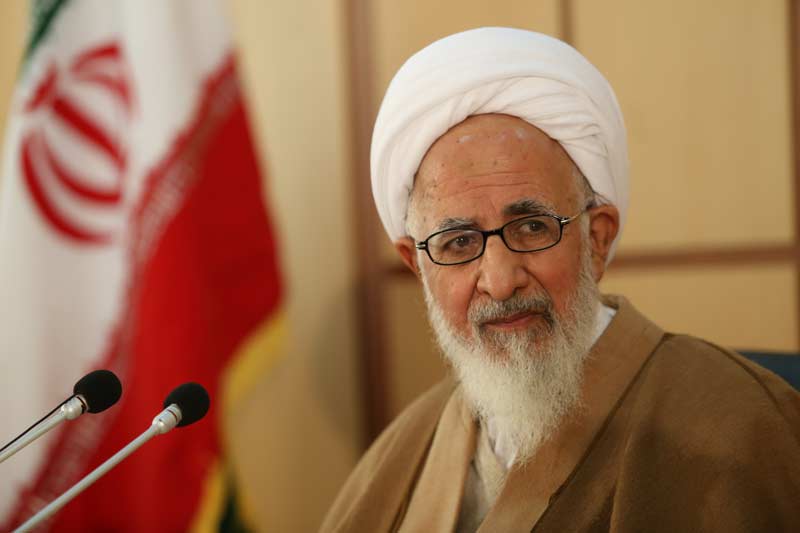


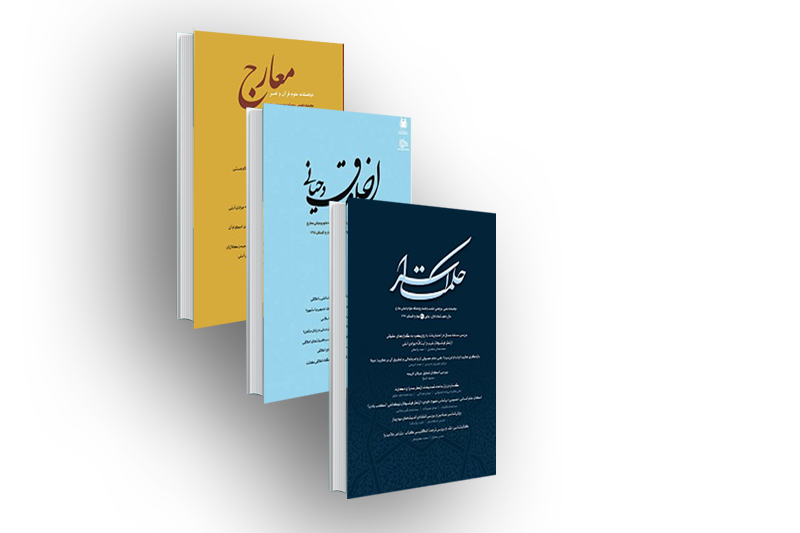


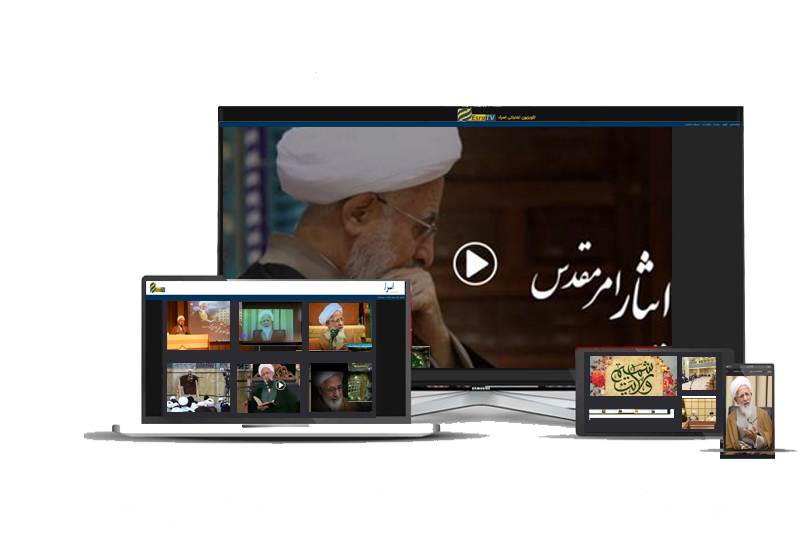
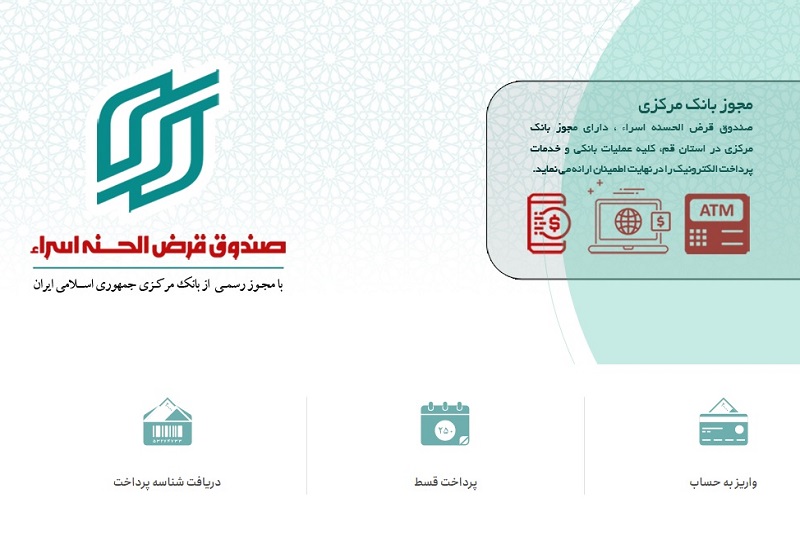

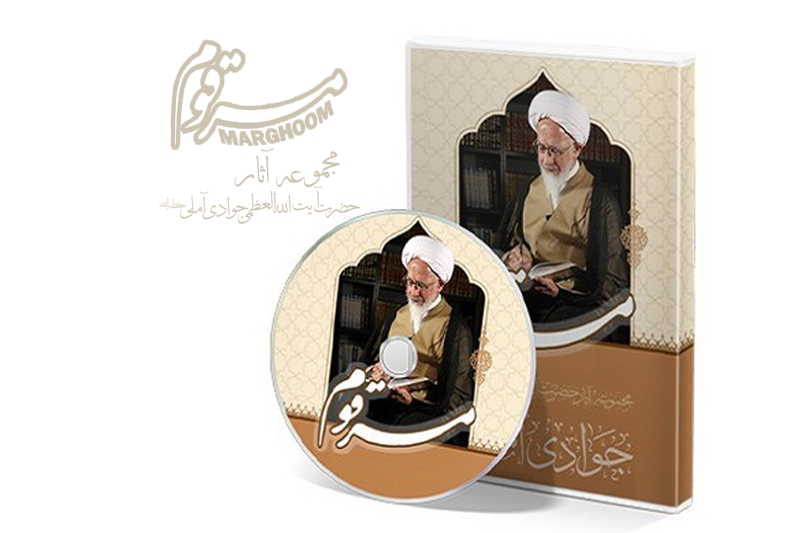
 Esra Publishing Center, the exclusive publisher of Ayatollah Javadi Amoli's works, started working in 1993; Among the missions and duties of the center are the production of written works with the desired and standard quality, fast and timely supply at the right price and supporting the products, providing easy, fast and low-cost access to the products for the domestic and foreign audiences, attending domestic and foreign international exhibitions, ….
Esra Publishing Center, the exclusive publisher of Ayatollah Javadi Amoli's works, started working in 1993; Among the missions and duties of the center are the production of written works with the desired and standard quality, fast and timely supply at the right price and supporting the products, providing easy, fast and low-cost access to the products for the domestic and foreign audiences, attending domestic and foreign international exhibitions, ….
